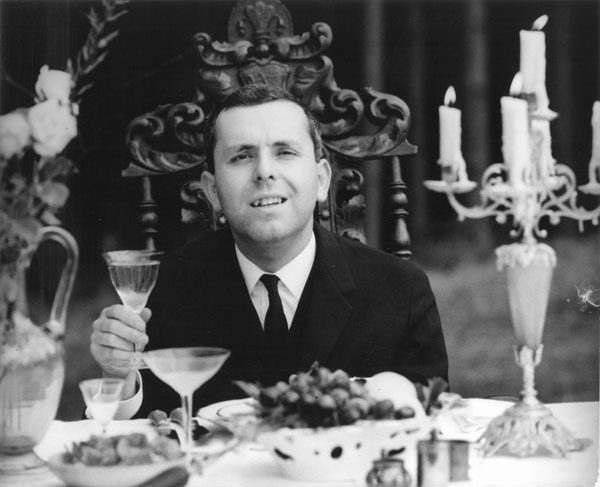“Jan Němec’s first three features—made in a creative flurry between 1964 and 1967—are pared-down, taut, fatless movies,” begins Max Nelson, writing for Film Comment. “Taken together, they can be seen as a central source text for the Czech New Wave, of which Němec is one of the founding fathers. The films have, among other things, the same brand of slapdash anarchism as Věra Chytilová’s Daisies; the same clipped, elliptical approach to storytelling as František Vláčil’s The White Dove; and—at least in the case of Martyrs of Love—the same sensitivity to the pangs and pitfalls of first-blush romance as Jiří Menzel’s Closely Watched Trains. But where his New Wave colleagues (Vláčil and Chytilová in particular) tended to aspire to a kind of filmed poetry, in which each image feels as if it’s always wrestling out of its narrative context, Němec seems most at home making the cinematic equivalent of novellas.”
The retrospective Independent of Reality: The Films of Jan Němec, beginning its U.S. tour at New York’s BAMcinématek today, gathers 12 films in all: Němec’s graduation short A Loaf of Bread (1960) paired with his debut feature, Diamonds of the Night (1964), and running for the full week; A Report on the Party and Guests (1966), banned at the time by the ruling Communist party; Pearls of the Deep (1966), an omnibus film also featuring shorts by Chytilová, Menzel, Jaromil Jireš, and Evald Schorm; the three-part ballad Martyrs of Love (1967), paired with the 1967 short Mother and Son; Metamorphosis (1975), a Kafka adaption made for German television after Němec was exiled in 1974, paired with the 1968 short Oratorio for Prague; the New York premiere of Late Night Talks with Mother (2001), an an experimental personal essay featuring, among others, Vaclav Havel; Toyen (2005), which BAM calls “one of the most enigmatic films of his career”; The Ferrari Dino Girl (2009), utilizing footage Němec shot during the Soviet invasion of Czechoslovakia in 1968; and Martin Sulik’s 2011 documentary Golden Sixties: Jan Němec.
A text you’ll want to revisit is Michael Koresky‘s excellent essay accompanying Criterion’s release of Eclipse Series 32: Pearls of the Czech New Wave. “Existing completely in the realm of allegory,” he writes, “A Report on the Party and Guests is nevertheless one of the most transparently political of all Czech New Wave films. At once whimsical and frightening, it confronts its audience with unsettling social realities. And though its message—simplified, that people are all too willing to be manipulated and controlled—resonated with viewers everywhere (Vincent Canby called it ‘pure and universal’ in the New York Times), in Czechoslovakia it was downright incendiary.”
For BOMB Magazine, Steve Macfarlane calls Němec at his home in Prague. The filmmaker quickly shifts the conversation to one of his great passions, jazz, though, of course, they end up talking about the films as well, his close friendships with Chytilová and Miloš Forman, and Czech cinema today.
For news and tips throughout the day every day, follow @KeyframeDaily on Twitter and/or the RSS feed. Get Keyframe Daily in your inbox by signing in at fandor.com/daily.




